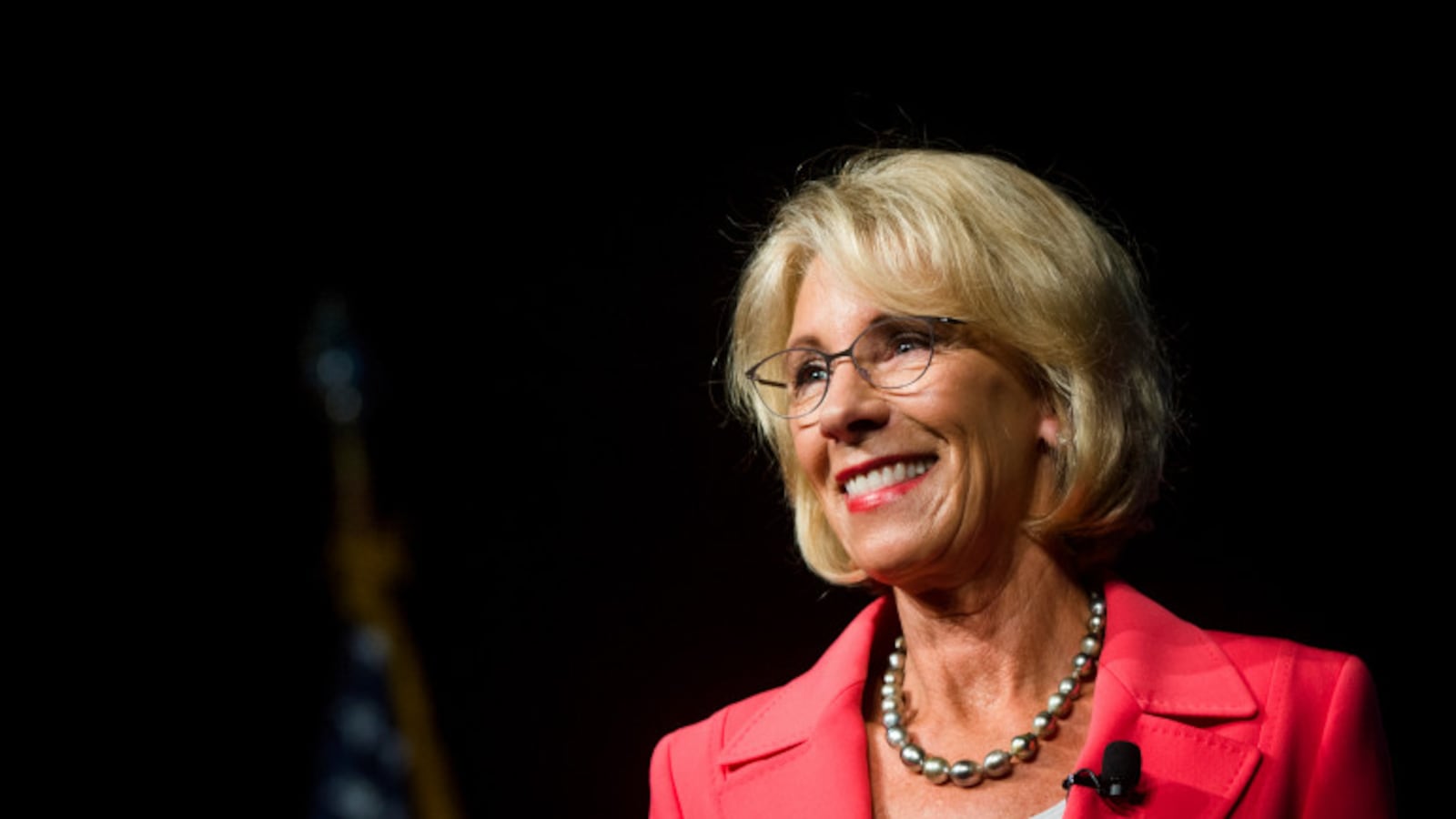Confronted for the first time with new research showing that Louisiana’s voucher program hurt students’ math test scores, Education Secretary Betsy DeVos offered an explanation: the program was badly designed.
“The Louisiana program was not very well conceived. It has discouraged many schools from participating in it, and in fact has encouraged some schools that probably would not have been parents’ first choices,” said DeVos, a school choice proponent, during the Education Writers Association conference in Baltimore Monday. “We see consistently, in the vast majority of cases, students’ achievement continues to improve.”
Her response is somewhat surprising, because the Louisiana voucher program has drawn strong support from the American Federation for Children, the school choice group DeVos chaired until she was nominated to join President Trump’s cabinet.
Meanwhile, recent studies of voucher programs elsewhere — in Indiana, Ohio, and Washington D.C. — have come to similar conclusions, suggesting the results of the Louisiana program are not due to its unique elements. After students enroll in a private school, math scores drop and don’t fully bounce back, even multiple years later, those studies have found.
Louisiana voucher program went statewide in 2012, and it is now used by about 7,000 students from low-income families to attend a private school. It requires participating schools to admit voucher students through a lottery, and hold those schools accountable for state test results, among other rules. Some voucher supporters have criticized the program as being over-regulated.
Only one-third of the state’s private schools participated in 2013-14 school year, with many citing concerns about potential regulations, admissions rules, and testing.
But DeVos’ former school choice group has supported the program, and even praised specific aspects of it. “Strong accountability measures have been at the forefront of the Federation’s efforts in recent years,” the group said in a 2012 release, when DeVos was still chairperson.
On Monday, DeVos also downplayed the importance of academic results to evaluate voucher initiatives. “We get focused on academic outcomes exclusively and often parents make choices for other reasons,” said DeVos, echoing other school choice advocates. “I think we should probably enter those sorts of conversations into the greater equation as well.”
In D.C., families with children in the voucher programs said their schools were safer, though there weren’t clear improvements in family or student satisfaction with their schools. In other cases, like Florida and Milwaukee, college enrollment rates increased as a result of choice initiatives, though that was not the case in Louisiana or D.C.
Older studies have found either no clear effect or small positive effects of vouchers on student test scores. A number of voucher programs, including ones that are lightly regulated, have never been studied.
DeVos’ speech to education journalists from across the country was a notable move for a secretary who has spoken mostly to conservative-leaning outlets in recent months and declined previous invitations to the Education Writers Association conference.
She made brief opening remarks — where she made her case for the administration’s proposed school choice tax credit — and then took questions from New York Times reporter Erica Green, and then from the audience of journalists.
During the course of the afternoon, she described why the administration rescinded controversial school discipline guidance; reiterated (misleading) claims about the relationship between school spending and student outcomes; responded to criticisms of the school choice ecosystem in Michigan; and ducked a question about whether she supported Tennessee’s effort to exclude unauthorized immigrant children from a voucher program state lawmakers recently approved.


